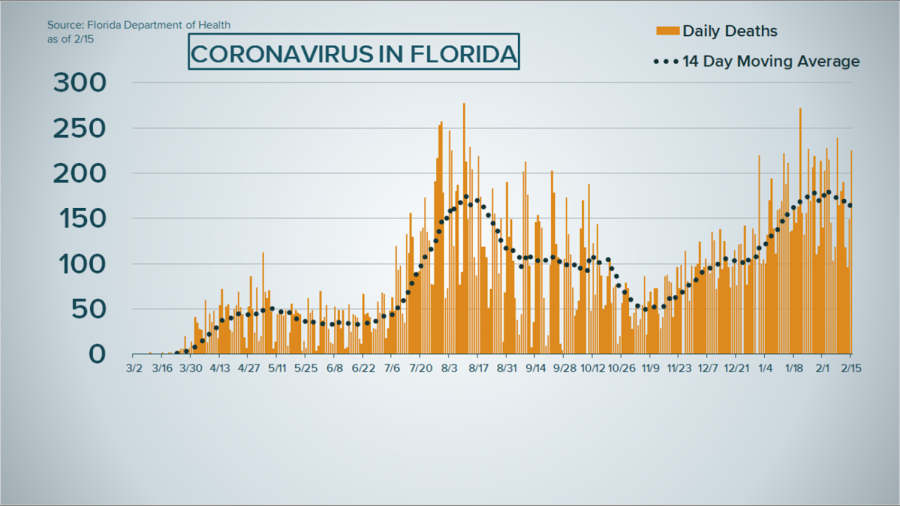Claims of a Florida Travel Ban and Response by Florida Officials
The new U.K. strain of COVID-19 has been found throughout the United States, with it being found most prominently in Florida at 343 cases, and in California at 156 cases.
The Miami Herald conducted a recent interview with White House officials about the new strain. During this interview, the group asked about potential travel limitations for Florida residents, to which an anonymous official responded, saying that “we’re having conversations about anything that would help mitigate spread.”
Immediately after the article was released, many prominent figures in the Florida Government immediately took issue with the idea of a Florida travel ban.
Governor Ron Desantis has been quoted, saying the process would be “unconstitutional, unwise, and unjust”, amongst other harsh words for the Biden Administration.
U.S. Senator Marco Rubio was another who took a strong stance against the potential travel ban, tweeting his disapproval, as well as writing a letter to President Joe Biden about the idea.
However, a few paragraphs after the initial question, two officials state that “no policy announcements are imminent, and that any move to restrict travel or impose new health measures would be taken in partnership with state and local governments.”
As it is, any travel ban on Florida is unlikely at best. However, some states have imposed rules on interstate travel. Some states have taken an approach similar to that of New York: travelers from neighboring states do not have to serve a mandatory quarantine, but any other traveler must serve a mandatory 10-day quarantine.
Meanwhile, other states have taken an approach like Florida or Alabama, which have no current restrictions on statewide travel, however travelers in Alabama must adhere to the mask mandate currently in place.
A select few states have taken more advanced and complicated measures in face of the pandemic, but the majority of states follow either New York or Florida in approach. It is yet to be determined whether the states will unify their approach, or keep their separate views.








